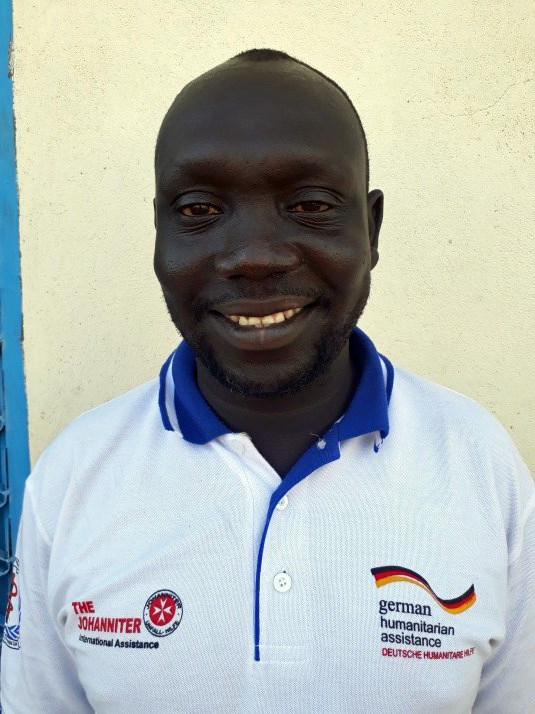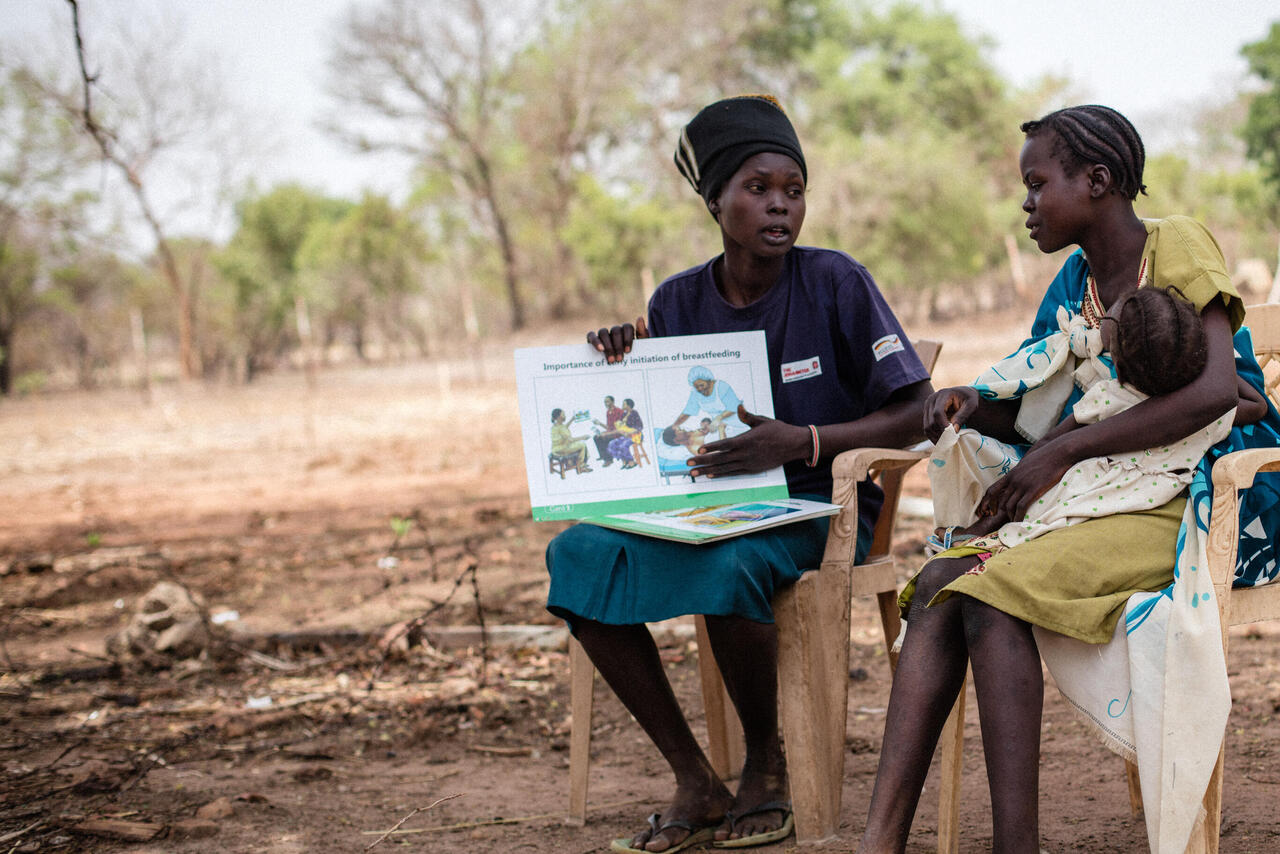South Sudan: "ICCM Approach Drastically Reduced Deaths"
Berlin / Juba, 11 September 2019
This year, Johanniter in South Sudan began introducing the integrated Community Case Management (iCCM) approach. With funds from the German Federal Foreign Office and in close cooperation with the Ministry of Health, the project will improve timely health care for children under five living in rural communities in Wau and Jur River Counties. The iCCM approach is implemented for communities living at least five kilometers from a functioning health facility. So-called Community Based Distributors (CBDs) are trained to provide home based basic diagnosis and treatment for the three most common childhood diseases: Malaria, diarrhoea and bacterial infections of the respiratory tract.

ICCM increases health-promoting behaviour and childhood diseases are treated earlier, reducing morbidity and mortality in childhood. In addition, iCCM volunteers monitor signs of malnutrition, provide health and hygiene education, and refer children at risk to nearby health or nutrition facilities. Loding Joseph Dagama, iCCM manager of Johanniter in Wau, describes in the following interview the implementation of this approach.
Loding Dagama, what is your previous experience with the iCCM approach?
Before joining Johanniter, I worked for the Malaria Consortium for almost four years and introduced iCCM in two counties in South Sudan. There we trained more than 5.000 Community-based Distributors and 520 supervisors. During this time, the occurence of communitydeaths in these areas has decreased drastically. Especially the mothers appreciated not having to spend much time travelling and waiting in health facilities.
What do you think makes iCCM a good approach?
The approach fills an existing gap in primary health care, especially for children in communities. ICCM prevents complications by early detection of cases and saves time of caretakers, as long journeys and waiting in a health facility are no longer necessary. The time gained can now be used for family care, cooking, fetching water or planting crops. In my experience, women are the best CBDs. Recruiting mainly women helps to improve their social status in a patriarchal society.
What are the particular challenges in iCCM?
Since iCCM is applied through volunteers in the communities, it initially requires a lot of effort. In a country with few jobs, identifying volunteers can be a sensitive issue and requires close cooperation with community leaders. It is also challenging to train volunteers without a specific medical background and often with a low literacy rate. We therefore use very simplified working materials with text and images that are easy to understand.

What is your wish for the future?
I would like to expand the project and train more CBDs to ensure that more vulnerable households are covered by iCCM. Furthermore, a case study from Nigeria has shown that iCCM can be successfully used for more diseases that the ones in our current protocol. My ultimate wish is for Johanniter to continue improving and expanding the iCCM approach so that more and more children in South Sudan can have the access to healthcare that they deserve.
